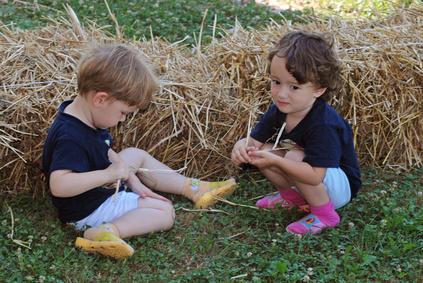Play dates are an important part of social development. They encourage young children to make friends, interact with others and learn how to share. They’re also a good way for moms to get some “mommy time.” While older kids are able to do their own thing, you may need to plan more structured dates for younger children.
Crafts
When you want to keep the kids relatively quiet, crafts may be the way to go. You could do something as simple as setting out crayons or paint and paper and letting the children do as they wish, or you could plan a more structured product. It’s smart to create something that the children can immediately play with after making it. For example, you could create masks from paper plates, puppets from brown lunch bags or necklaces for playing “princess.”
Outdoor Fun
Playing outdoors gives children the opportunity to build gross motor skills and to “get their wiggles out.” Take the play date outside with balls and ride-on toys. If it’s summer time, you can also incorporate some water play, either in a sprinkler or in a baby pool. If none of the mothers involved have a good place to play, you could meet in a park that has a sandbox or age-appropriate playground equipment.
Snacks
Little tummies can get hungry quickly, especially when they’ve been playing actively. Plan some snacks that you can have during that time. Ask other moms ahead of time if the children have dietary restrictions. Serve healthy snacks like fresh fruits, yogurt or sandwiches on whole wheat bread.
Outings
Meeting at an outside location works well for many parents. You don’t have to worry about cleaning your place to impress others. Depending on the age of the children, you could meet at a children’s museum, an indoor play area or a beach. Choose a place that will allow children to play together while the moms get a chance to chat.
Free Play
You don’t have to schedule every minute of the play date. Children can also feel happy when they choose the activities that they do. The best way to do this is to offer a few choices of activities when the other children get to your home. For example, you could allow children to play with Play-Doh, the pretend kitchen or connecting blocks. Choose toys and games that encourage interaction, rather than ones that the child may play on her own. Hide any toys that are popular and could cause a fight.
Photo Credit
- twins play image by DXfoto.com from Fotolia.com





